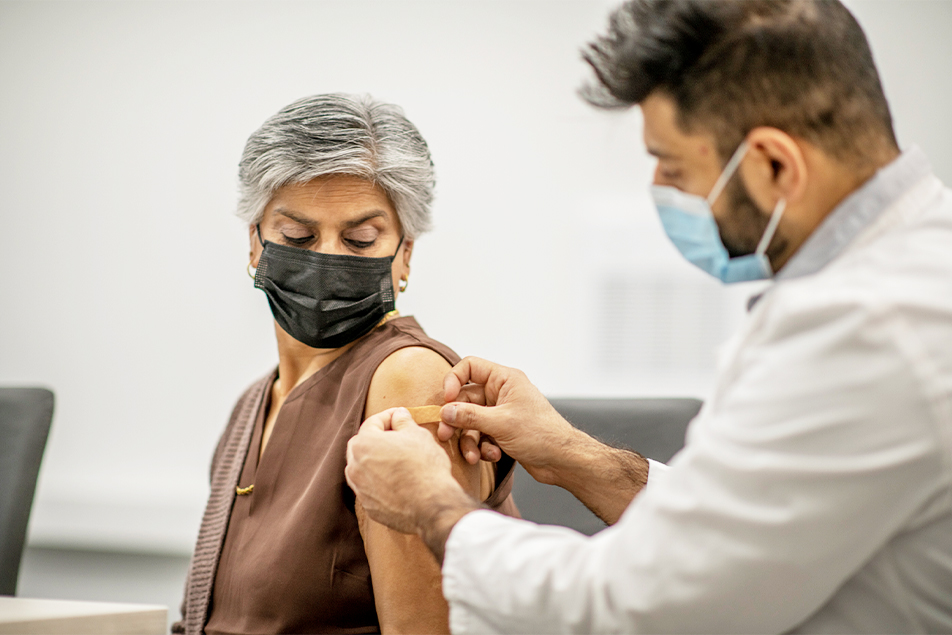
In recent days you've likely heard about the side effects and links between the mRNA COVID-19 vaccines and a higher risk of rare heart inflammation. For more on the subject and why the benefits of vaccination greatly outweigh the risks, we turn to Dustin Thomas, MD, PPG – Cardiology.
What are the potential side effects associated with the COVID-19 vaccines?
The CDC recently released some guidance concerning some rare cases of heart inflammation, or myocarditis, associated with the mRNA vaccines produced by both Moderna and Pfizer. While these side effects appear to be extremely rare, they are most frequent in the younger population, those in their 30s, 40s or younger, that have become eligible for vaccination. Undoubtedly, this is an essential update since the vaccine was recently approved to be used in children down to 12 years of age, making them a population we need to keep observing.
How prevalent are these cases?
Current reports state that these cases are extremely rare. We have seen a small handful of cases locally within the Fort Wayne area. Thankfully, most instances appear to be self-limited, resolving without treatment, and those affected tend to recover without any long-term sequelae. With that said, new information is updated every day, and we will continue to monitor the situation.
How is heart inflammation detected?
Typically, heart inflammation is routinely detected if someone presents with symptoms like chest pain, shortness of breath, heart palpitations, or fluttering. In which case, we would have lab tests and blood work drawn similar to those patients who present with heart attacks. If the results come back elevated, generally, it is a sign of myocarditis.
Is there a link between the side effects and a vaccine manufacturer?
The condition doesn't seem to be manufacturer-specific at this time. With that said, it does seem to be associated with the mRNA vaccine class, which currently includes the Pfizer and Moderna vaccines. The other COVID-19 vaccines use a different mechanism action that isn't associated with heart inflammation at this time.
Do the benefits of the vaccine outweigh the potential risks?
Yes, despite this new data, the benefit of getting vaccinated does outweigh the risk. These are infrequent effects that are self-limiting and resolve without any sequelae. Additionally, people need to remember that the COVID-19 virus itself also causes myocarditis. So, the same rare cases of heart inflammation we see with the vaccines also occur, but more frequently, with the viral infection itself. In which case, the inflammation presents much worse, causing a more significant impact on the squeezing function of the heart, and most patients do not recover as frequently. As more information comes out about the long-term ramifications of a COVID-19 infection, I think many would agree that these rare, self-terminating side effects, which can resolve with the vaccine, are minimal compared to the risk of getting a full-blown COVID-19 infection.
If someone experiences these side effects, what should they do?
If anyone is concerned about these kinds of reactions to the vaccine, please contact your primary health care provider. Also, if there's concern that you or a loved one might be experiencing or have heart inflammation, we recommend you see a cardiologist.
Are you concerned that the recent side effects will deter others from getting vaccinated?
Honestly, there's always some hesitancy around vaccination, particularly as we start immunizing younger and younger populations. But, hopefully, this is a once-in-a-generation pandemic. Moreover, the public health benefits to getting vaccinated, protecting each other and the members of our local community that can't be vaccinated and are at higher risk for poor outcomes greatly outweigh any concerns or drawbacks.
With that said, anytime we're talking about parents vaccinating their children, it's a meaningful discussion that must take place. Whether it's a pediatrician or primary care provider, incorporating healthcare professionals is necessary because of the new data and information emerging daily during the pandemic.



